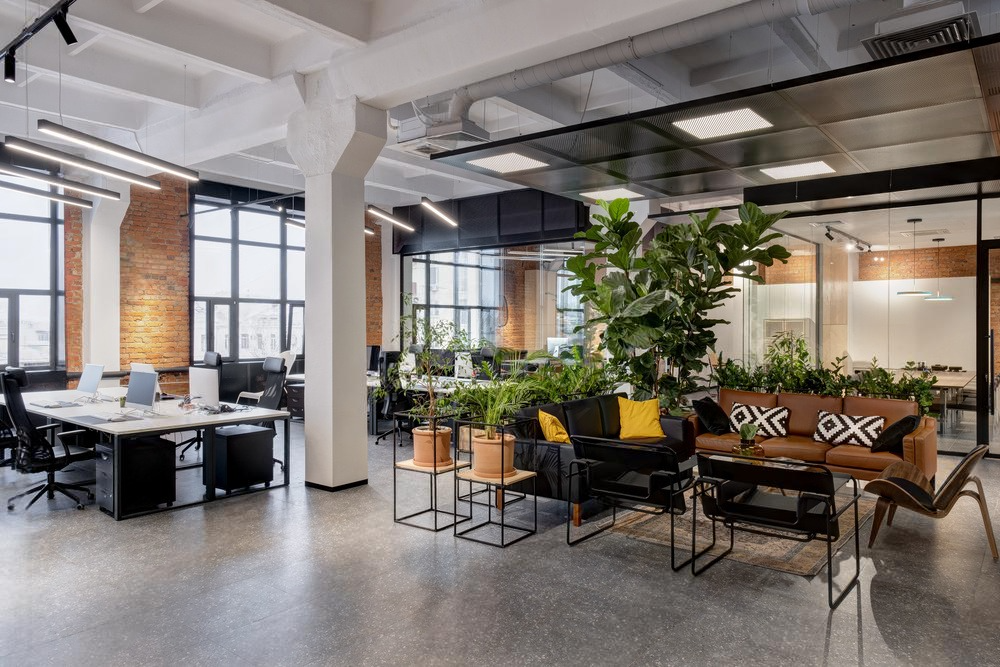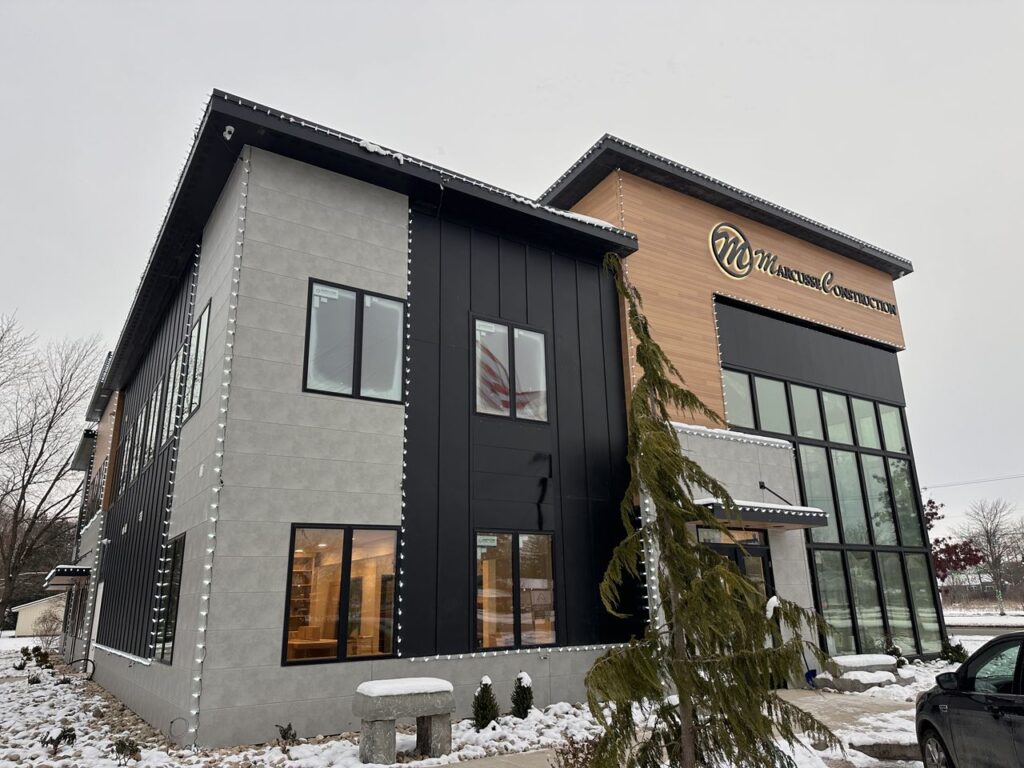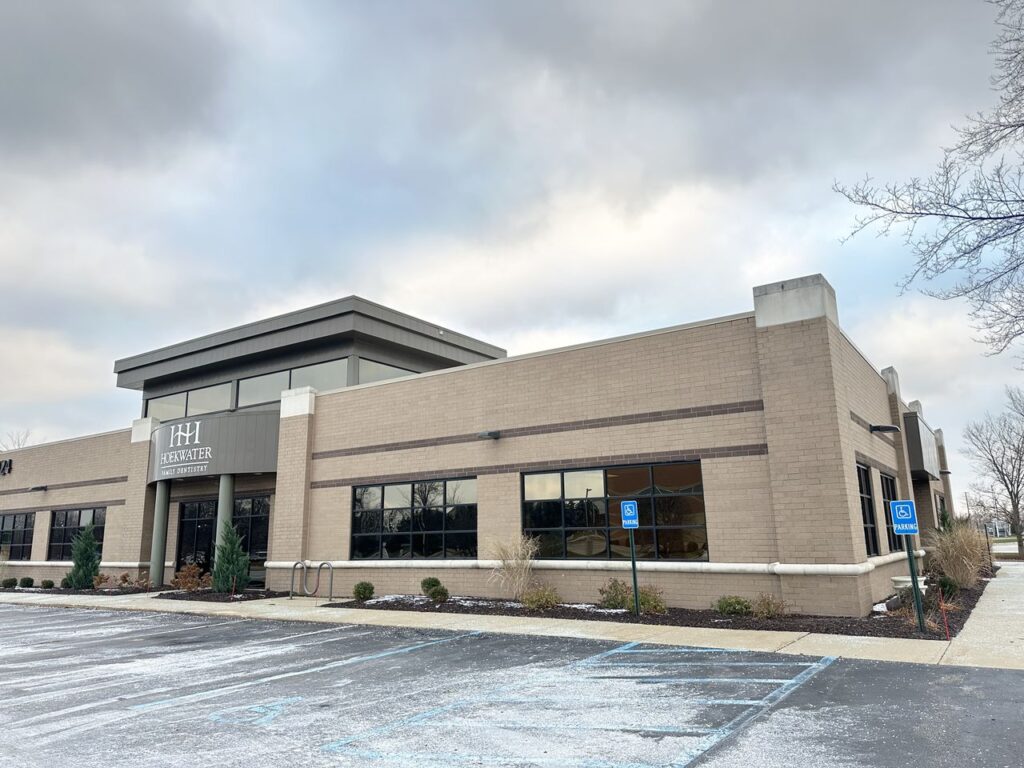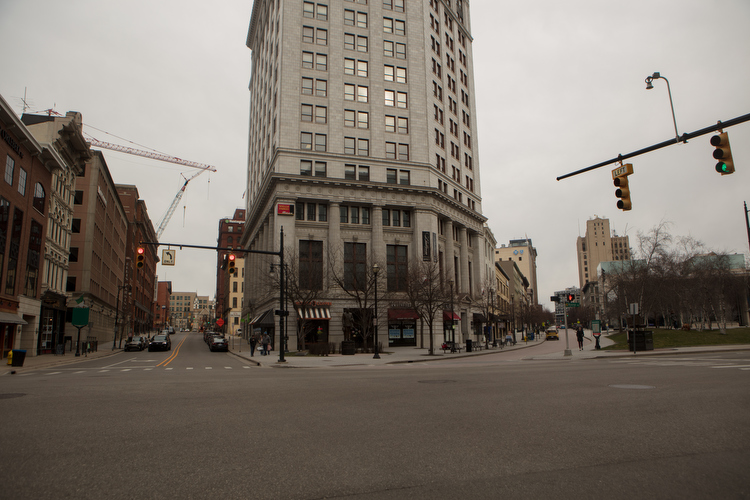The Need for Modern Office Design and Flexible Leasing Solutions
Overview
The narrative surrounding downtown Grand Rapids’ office market often paints a picture of decline – but, the reality is more complex. High vacancy rates in the CBD are not a sign of businesses leaving the area but rather a symptom of outdated, uninspiring spaces that no longer meet modern tenant expectations.
With local developments like The Acrisure Amphitheater with a mixed-use residential tower, Amway Soccer Stadium, former Charley’s Crab site, and Restore the Rapids initiative all representing well over $1 billion in investment, as well as a notable uptick in young professionals returning to downtown living and working, the need for a transformation is increasingly more present (DGRI).
Current State of the Downtown Office Market
These conditions are not due to a lack of interest; instead, many tenants claim that outdated facilities are the primary roadblock. Local companies view modern office amenities as critical factors in their decision to lease office space.
Recent office design trends reflect this shift, emphasizing open layouts, natural light, and contemporary aesthetics that appeal to employees and visiting clients — the primary focus is on environments that can promote collaboration, community, and hybrid flexibility.

The Role of Creative Leasing Strategies
While renovations are essential to revitalizing downtown office space, they often require significant investment. Creative leasing strategies can help bridge the gap by reducing upfront costs for tenants, offering incentives like initial free rent that allow businesses to allocate more toward customizing their spaces. This win-win approach secures longer-term occupancy for landlords while attracting tenants seeking flexibility and modern amenities.
Some notable deals including TI allowance by Advantage Commercial Real Estate include:

$20.55 PSF | $90K TI | Signed 2/18/25

$19.00 PSF | $85K TI | Signed 9/9/24
A prime example is the 99 Monroe building, a multi-tenant tower in downtown Grand Rapids. Beginning in 2014, Franklin Partners undertook a multi-phase renovation that introduced open workspaces, Class A upgrades, and flexible leasing incentives. This created a turnaround in occupancy and renewed tenant demand. Most recently, Booking.com completed a fifth-floor renovation for its 50-person team, relocating from Wyoming to downtown Grand Rapids.

Looking ahead, more Class A developments will be critical to building momentum. A newly proposed 21 story, 420,000 SF office tower is part of a $739M mixed-use riverfront project downtown, and while promising, the developer notes that Michigan Brownfield tax relief is essential for the project to proceed, as construction costs far exceed what rental revenue alone can support. Projects like this represent the scale of investment needed to meet demand and elevate Grand Rapids’ profile as a regional business hub.
Future Outlook
To ensure that Grand Rapids remains competitive in the evolving office market, a focus on both tenant-centric design and innovative leasing is critical. Local stakeholders, developers, and landlords, must consider:
- Investing in Upgrades: Prioritize renovations that align with modern design trends.
- Adopting Flexible Leasing Models: Offer creative incentives to attract and retain quality tenants.
- Leveraging Local Developments: Use upcoming projects as the foundation for broader downtown revitalization.

Gary Albrecht | Advantage Commercial Real Estate
“With new entertainment venues on the horizon, downtown Grand Rapids can once again become a sought-after location for businesses. Developers who are willing to modernize existing spaces stand to benefit as companies look to establish a presence both in the CBD and West Side.”
The challenges facing downtown Grand Rapids are not unachievable. With a concentrated effort to modernize office spaces and implement creative leasing strategies, the city can overcome higher vacancy rates and create dynamic workplaces that appeal to modern tenants. The need for a renewed focus on tenant-centric design is clear, and it’s implementation will unveil a promising path toward urban renewal and economic growth in Grand Rapids.
For more information on the current West Michigan CRE landscape, read our 2025 Q1 Market Report.


